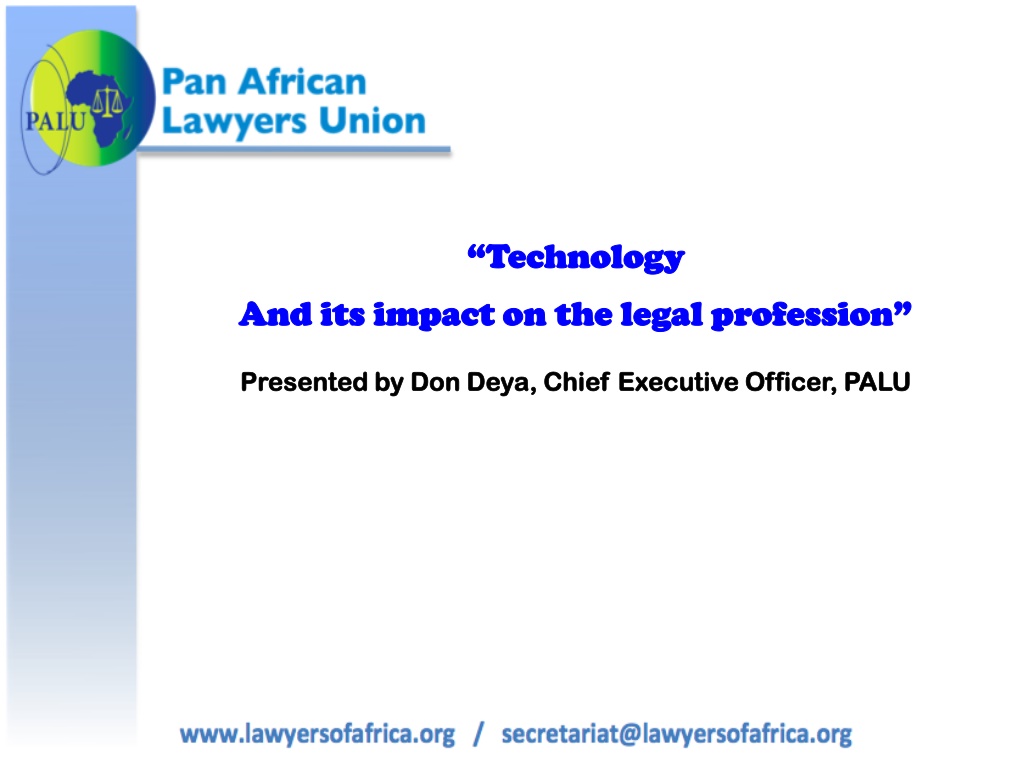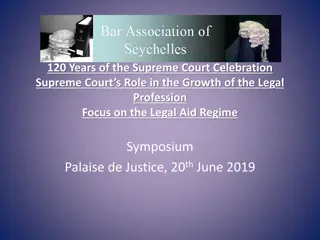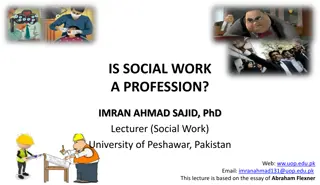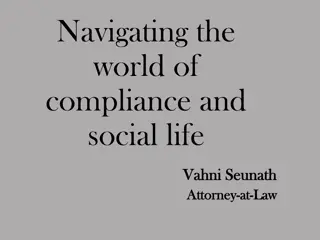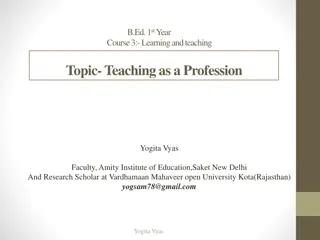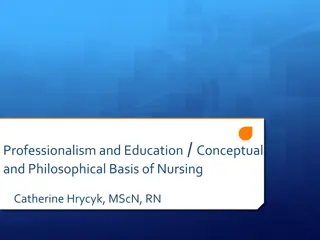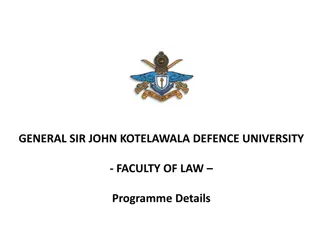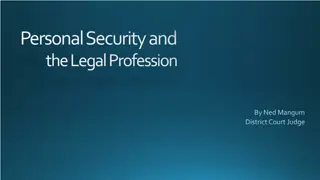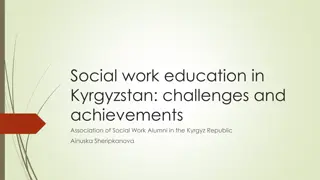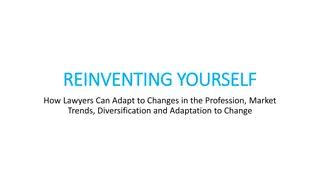Impact of Technology on the Legal Profession
The presentation by Don Deya sheds light on how technology has influenced the legal profession, covering aspects like online legal research, virtual meetings, and digitalization efforts. The historical evolution from typewriters to smartphones is discussed, alongside current trends in AI, blockchain, and online legal services. The talk emphasizes the need for embracing technological advancements in legal practice for enhanced efficiency and accessibility.
Download Presentation

Please find below an Image/Link to download the presentation.
The content on the website is provided AS IS for your information and personal use only. It may not be sold, licensed, or shared on other websites without obtaining consent from the author.If you encounter any issues during the download, it is possible that the publisher has removed the file from their server.
You are allowed to download the files provided on this website for personal or commercial use, subject to the condition that they are used lawfully. All files are the property of their respective owners.
The content on the website is provided AS IS for your information and personal use only. It may not be sold, licensed, or shared on other websites without obtaining consent from the author.
E N D
Presentation Transcript
Technology Technology And its impact on the legal profession And its impact on the legal profession Presented by Don Deya, Chief Executive Officer, PALU Presented by Don Deya, Chief Executive Officer, PALU
Prefatory remarks Thank Salieu Taal, who is a member of the PALU ICT Committee Ms. Ife Osaga-Ondondo, manages legal affairs for Google in Africa Wanted a lawyer who is deeply immersed in legal affairs in ICTs, IN AFRICA Wanted a woman, because both law and technology impact differently on women and men, on female and male lawyers Apologise that this is not completely possible Apologise also that the opening sessions did not feature women lawyers or young lawyers (both female and male). This is a serious indictment of the way we run our profession and many other affairs in our continent, and our world The Conference will feature The future of the Judiciary The future of Alternative Dispute Resolution (ADR) The future of legal education The future for advocacy for rule of law, human and peoples rights Data Protection and Privacy
A look back in the history of the legal profession and technology 2000, 2001: Training for law firms and Judiciary in Kenya to move from type-writers to desk-top computers We started with the Secretaries and Clerks 2010, 2011: Onset of the tablet, and the smart phone Many adults bought the gadgets for their children, before they bought it for themselves Will the same happen, for the next phase? Dr. Luis Francheschi UBER of law MOBILE MONEY/ MPESA of justice Will we behave the same?
What we now use ICTs for 1. Online legal research: LexisNexis, Westlaw, OpenLII, SafLII, etc Many Lawyers Associations have online databases and directories, where you can check the practice status of their members E-mail Groups WhatsApp Groups Meetings with each other and clients online: Skype, GoToMeeting, BlueJeans, Zoom, etc (Some) Judiciaries leading the path with online filing African Court on Human and Peoples Rights (AfCHPR): You can do commence and conclude an entire case, from your Chambers, without stepping in Arusha, and watch the delivery of the Judgement, live on Livestream 2. 3. 4. 5. 6. 7.
What is going on now, and in the near future 5th-generation Internet Artificial Intelligence and Machine Learning: Conveyancing Robotics Blockchain: Contracts, money Cryptocurrency Jason Braganza: Digitalisation Free legal advice websites
Some Current Applications and Implications Judicial independence, or perception of it: Judges on Facebook have been asked to recuse themselves Cyber-crime: New ways of committing theft and crime Cyber forensics: New ways of investigating and prosecuting crime E-health: How will the substantive law and procedural law be adapted to prosecute medical malpractice, for health services rendered electronically?
What PALU is offering (and we are open to your ideas) More reliance on the ICT Committee Online Seminars: Webinars Considering setting up an Incubator at the PALU Secretariat New specialisations within the profession New ways of doing our work Engaging the AU to offer leadership, practical guidance and assistance to Member States to formulate policies and laws for benefiting from these technological innovations and evolutions
